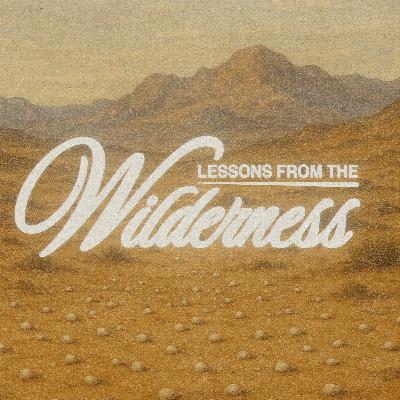Discover Relevant Church Podcast
Relevant Church Podcast

613 Episodes
Reverse
As we step into the next chapter God is writing, we’re called to pray boldly and obey courageously. In Nehemiah 11, the people volunteered to move, give, and commit in ways that cost them something—but opened the door to everything God wanted to build.In this message, Pastor Carl unpacks what it means to live out our identity, beliefs, and commitments with bold faith. Obedience always costs something, but disobedience costs more. Faith takes you farther than fear wants you to go. And new chapters always require new commitments.Let’s step into the future God has for us—together.
We cleared out what doesn’t matter — now it’s time to double down on what does. In Nehemiah 10, the people didn’t just repent, they rebuilt. When God is first in our priorities, our finances, and our future, blessing follows purpose. In this message, Pastor Carl shows us how trust becomes the foundation, “first” becomes the framework, and obedience becomes the lifestyle that builds a legacy that lasts.
We all want God to build something great in our lives. But before He builds, He clears. In this message, Pastor Carl Nichols shows how clutter—spiritual, emotional, and financial—can block the very blessings we’re praying for. Through the story in Nehemiah, we learn that confession brings clarity, commitment brings change, and generosity makes room for revival. If you’re ready for God to move, it’s time to clear out the clutter.
Pastor Carl Nichols challenges us to move from passive faith to active obedience. The difference between those who just sit and those who truly make a difference is simple—obedience. Discover how God is calling you to be a laborer in His harvest, not just a spectator. The harvest is ready… will you clock in?
You don’t have to stay stuck in your pain. In this message from Pastor Carl Nichols, discover how true healing begins with honesty before God, grows as we remember His goodness, and deepens when we walk together in community. Jesus carried what broke us so He could become what heals us.
Faith isn’t born from confusion—it’s born from clarity. In this message, Pastor Carl unpacks how God’s Word, when proclaimed with courage and clarity, transforms hearts and ignites faith. Through Nehemiah 8 and Acts 2, we see how understanding brings belief, humility brings change, and boldness brings revival.
Everyone longs to belong — and God designed the Church to be more than a crowd you sit in, but a family you belong to. In this message, Pastor Carl Nichols reminds us that we are known by name, welcomed into God’s family, and called to make a difference. You were made for more — to live with identity, belonging, and purpose.
Loneliness doesn’t care about age, status, or success—we all feel it. But you’re not forgotten. Just like Mufasa’s story and even Jesus’ own journey, loneliness doesn’t have to define your life. Join Pastor Carl as we discover hope, healing, and purpose when we feel unseen.
We’ve all felt the weight of guilt—the pit in your stomach, the shame of crossing a line, the regret of hurting someone you love. This week Pastor Daniel unpacks how godly sorrow leads to freedom, grace, and a new future. Don’t let guilt write your story—let grace rewrite it.
When anxiety attacks, you don’t have to fight alone. God’s peace guards your heart, His presence gives you rest, and His power makes you strong. With Him, fear doesn’t win—faith does.
Grief touches every life, but it doesn’t have to define the end of the story. In this message, Pastor Carl Nichols reminds us that grief is the evidence of love—and when we bring our brokenness to God, He heals, comforts, and gives us strength to press forward. Discover how your pain can become purpose, and how the greater adventure begins when you release the past and step into the destiny God has marked out for you.
You were never meant to settle for survival—you were made for more. Made For More is a powerful series walking through the book of Nehemiah, reminding us that God often breaks something in us before He rebuilds through us. Each week, we explore what it means to be Relevant—not just in name, but in how we respond to pain, pressure, and purpose. From praying through the pain to embracing divine burdens, we’re learning that discomfort is often the birthplace of calling. This series also challenges us to make bold asks, rise above the noise, and stand firm in the face of spiritual battles. It’s not just about what we’re building—but who we’re becoming in the process. If you’ve ever felt like there’s more in you than what you’re living, this series is your invitation to step into it.
You were never meant to settle for survival—you were made for more. Made For More is a powerful series walking through the book of Nehemiah, reminding us that God often breaks something in us before He rebuilds through us. Each week, we explore what it means to be Relevant—not just in name, but in how we respond to pain, pressure, and purpose. From praying through the pain to embracing divine burdens, we’re learning that discomfort is often the birthplace of calling. This series also challenges us to make bold asks, rise above the noise, and stand firm in the face of spiritual battles. It’s not just about what we’re building—but who we’re becoming in the process. If you’ve ever felt like there’s more in you than what you’re living, this series is your invitation to step into it.
This message focuses on the urgency and responsibility believers have to act on God’s instructions without delay, using Nehemiah 3 as an example of unified and purposeful work. Pastor Carl Nichols emphasizes that opportunities have an expiration date—when God has already spoken, there’s no need to pray for further direction. Like the builders of Jerusalem’s wall, each person has a role, and immediate obedience creates momentum that inspires others. Delaying obedience is essentially saying “no” to God, and half-finished work leaves room for the enemy’s attack. The call is to work while it’s day, because today’s effort becomes tomorrow’s testimony, building something that will outlast us and bless generations we may never meet.
In this message from the Made for More series, Pastor Carl Nichols emphasizes that when God gives you a vision, you shouldn’t play it small—you should boldly ask for what’s needed. Drawing from Nehemiah 2, the sermon highlights five bold moves: pray first, speak up even when afraid, ask with both passion and a plan, trust God with the outcome, and invite others into the vision. Nehemiah approached the king with a clear and courageous plan, proving that faith paired with strategy leads to favor. We’re challenged to reject fear, take ownership, and build together instead of watching from the sidelines. Ultimately, if we believe in the mission, our prayers, giving, and voices should reflect it.
In the sermon Made for More: “We Are Relevant and We Pray Through the Pain”, Pastor Carl Nichols draws from the story of Nehemiah to show that before God rebuilds through us, He often breaks something within us. Using Nehemiah’s journey, he outlines a progression: first, we must sit down to cry, allowing ourselves to feel the brokenness around us; then we kneel down to pray, not just interceding for others, but repenting alongside them; and finally, we stand up and act, stepping boldly into the work God calls us to do. Nehemiah didn’t just weep and pray—he took courageous steps of faith. The time between feeling a burden and moving in boldness is where God prepares us. Ultimately, the message encourages us to respond to pain not with passivity, but with prayer-fueled action, trusting God to begin a good work through our obedience.
This message highlights the unwavering faith and bold spirit of Caleb, who stood out among his peers because he followed God wholeheartedly. While others doubted and disobeyed, Caleb’s “different spirit” positioned him to inherit the promise God made—even after 45 years of waiting in the wilderness. His name, meaning “dog,” symbolizes loyalty, grit, and courage to lead without backing down. Caleb didn’t let age or fear stop him; instead, he declared strength in his old age and boldly claimed what God had promised, ready to drive out giants and take the land. The call is clear: lead with conviction, stay faithful, don’t settle in the desert—and never retire from pursuing what God has promised.
In “Giants and Grasshoppers,” Pastor Carl Nichols emphasizes that your perspective can either push you into your promise or trap you in the wilderness. Drawing from the story of the Israelite spies, he outlines four facts about faith: what you see shapes who you become; how you view yourself influences how others see you; real faith stands even when fear is popular; and your mindset can delay your destiny. The Israelites’ fear distorted their vision, identity, and obedience, ultimately costing them the promise God had prepared. While God can lead you to breakthrough, it’s only faith—not fear—that will lead you through it. Your faith must be louder than your fear, or you risk wasting your wilderness instead of walking into your promise.
In “Lessons from the Wilderness: From Sinai to Pentecost,” Pastor Carl Nichols explores four key shifts between the events at Mount Sinai and the outpouring of the Holy Spirit at Pentecost. At Sinai, God’s power caused fear and distance, but at Pentecost, His presence brought boldness and closeness. The law given at Sinai brought death and exposed sin, while the Spirit at Pentecost brought life and the power to overcome sin. Where God once wrote His commands on stone tablets, He now writes them on human hearts, replacing external religion with internal transformation. Finally, Sinai revealed human weakness through God’s commands, but Pentecost supplied divine strength through the Holy Spirit. In essence, Sinai showed what God required—Pentecost empowered what God desired.
This sermon, Lessons from the Wilderness: The Law, the Servant, and the Savior, explores how God’s law was never meant to save us but to reveal His holiness and expose our need for a Savior. Like a mirror, the law reflects our flaws but cannot cleanse us. Jesus, through His perfect life, fulfilled the moral, civil, and ceremonial laws, completing what the law could not by offering grace that transforms us from the inside out. Grace doesn’t abolish the moral law but internalizes and empowers it through the Spirit. Because of Christ, we are no longer slaves to sin or bound by rituals—we are sons and daughters, adopted into God’s family, with His law written on our hearts and His Spirit living within us.









